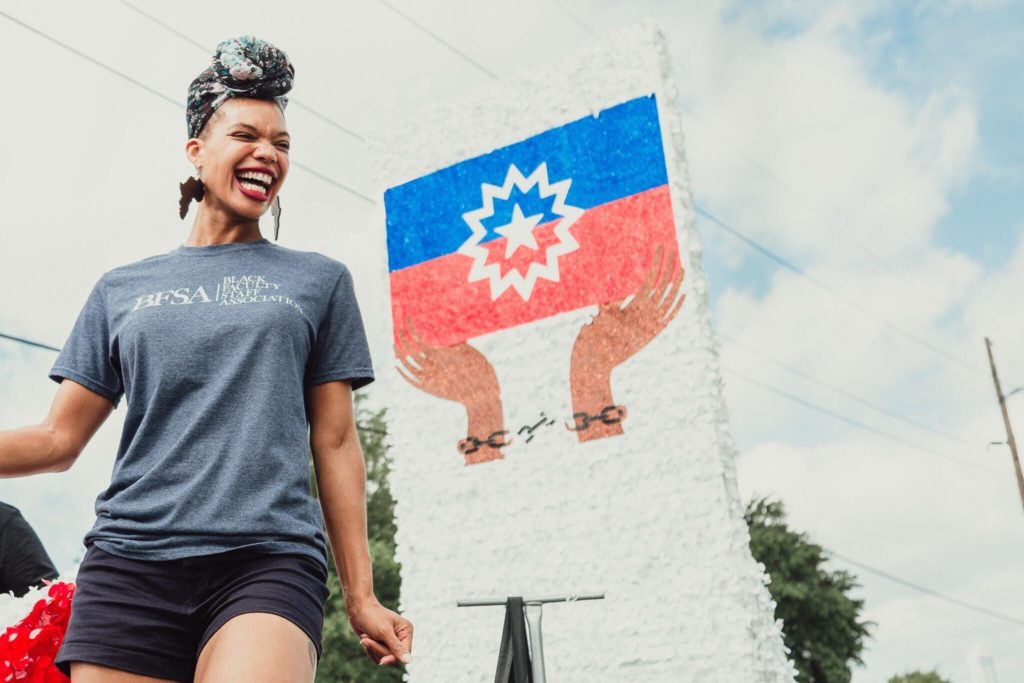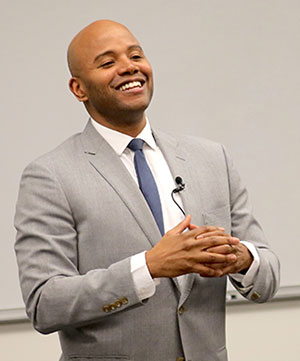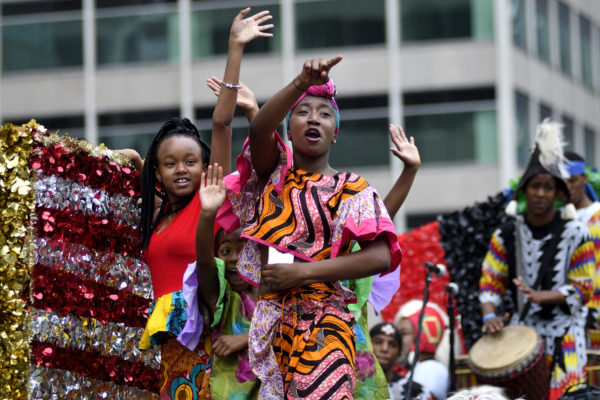Juneteenth (short for “June Nineteenth”) is the oldest nationally celebrated commemoration of the end of racial slavery in the United States. It was on June 19, 1865, that the Union soldiers, led by Maj. Gen. Gordon Granger, landed at Galveston, Texas, with news that the war had ended and that the enslaved were free. Texas was the last state to free enslaved African Americans. This was 2½ years after President Abraham Lincoln’s Emancipation Proclamation in 1863.
“Texas housed more than a quarter-million enslaved African Americans and even after the surrender of the Confederate army, word of emancipation did not reach this part of Texas until that day,” says Peniel Joseph, the founding director of the Center for the Study of Race and Democracy at The University of Texas at Austin LBJ School of Public Affairs. “Beginning in 1866, black Americans in Galveston celebrated that date as Jubilee. Celebrations spread to Houston and other parts of Texas, and waves of migration in the 20th century set the holiday loose nationally.”
On Jan. 1, 1980, Juneteenth became an official Texas state holiday through the efforts of Al Edwards, an African American state legislator. The successful passage of this bill marked Juneteenth as the first emancipation celebration granted official state recognition.
Juneteenth is a bittersweet time of reflection. People are uncomfortable with this history,"

“Juneteenth is a bittersweet time of reflection. People are uncomfortable with this history,” says Stephanie Lang, the program administrator at UT’s Division of Diversity & Community Engagement. She is a community curator bringing together oral history, archival work and civic engagement in Central Texas. Lang’s family has been in Austin since the mid-1800s. She recently found out through her archival work that her ancestors were enslaved in Austin and the surrounding areas.
“Doing this work has really hit home the importance of having a formal remembrance,” says Lang. “There is a detachment from the history of slavery. Juneteenth encourages people to become more invested in learning more about the place you live in and its history. It is a day where we must unpack in and engage with this history instead of hiding or dismissing it.”
It is a time to remember that we really are unstoppable, resilient and beautiful.”
Juneteenth is a holiday of hope. A time of joy to ease the pain, anger and sadness around continued racial injustice in the United States.

Growing up in Fort Worth, Texas, Joy Melody Woods, a doctoral student at the Moody College of Communication, remembers the parades and large community events on Juneteenth.
“For the longest time growing up, I was confused to why we celebrated a day when we were the last to know we were free,” she says. “Now as an adult, Juneteenth means a time to reflect on how we as a people (black people) are really able to come together and celebrate our history and heritage. Our history as African Americans started long before our enslavement, and it is a time to remember that we really are unstoppable, resilient and beautiful.”
Woods says while many celebrate with large events, she likes to relax on Juneteenth.
“I choose to celebrate by resting because knowing that this day is a celebration of being free from enslavement — a thing that made us work for the profit of others and sometimes even work us until we died — resting and doing absolutely nothing is a beautiful celebration and actually powerful. Not having to be beholden to anything for one day is something that black folks, but especially black women, rarely get to experience. So I just sit in that,” says Woods.
Woods is an advocate for black voices in health care and the co-founder of the #BlackintheIvory, a hashtag used on Twitter to share experiences of racism and being black in higher education.
“Being able to say I am from Texas, the place where these celebrations started, also gives me a sense of pride. It speaks to the fact that we cannot celebrate until we are all free, which I think still stands true today.”
Juneteenth is a celebration of freedom from slavery. African Americans’ true independence day.”

As black Americans migrated north after emancipation, the holiday migrated too. Some of the largest Juneteenth celebrations in America have been in San Francisco, Denver, Milwaukee and Philadelphia.
Today, 48 states and the District of Columbia recognize Juneteenth as a state holiday. As celebrations kick off Friday across the nation, the events of 1865 in Texas are not forgotten.
“Juneteenth is a celebration of freedom from slavery. African Americans’ true independence day,” says Deseré Cross Ward, a UT Austin staff member, co-president-elect of UT’s Black Faculty and Staff Association and a master’s student in UT’s College of Education.
“I grew up in North Carolina celebrating Juneteenth with my family annually. Typically, my family would attend a cookout in the afternoon and our community’s Juneteenth carnival in the evening. Since moving to Texas, I’ve really enjoyed participating in the Juneteenth parade and celebrating black culture at different community events. This year, I’m looking forward to tuning into Black Faculty & Staff Association’s (BFSA) Instagram Live Juneteeth Mix with DJ Motivate and the “Stay Black And Live” virtual Juneteenth festival hosted by several black organizations in Austin’s historic Eastside.”
It is a reminder of the fact that black labor built American wealth and the distance that remains to be traveled to achieve racial justice and black dignity and citizenship.”

Many large brands such as Nike and Target are making Juneteenth a paid holiday as a time for reflection. There is also a growing call to make it an official national holiday.
“Since the Black Lives Matter protests, there has been a renewed focus on ending racism and acknowledging the parts of American history that we too often forget,” says Joseph, who argues that Juneteenth should be a national holiday. “It is a reminder of the fact that black labor built American wealth and the distance that remains to be traveled to achieve racial justice and black dignity and citizenship.”
In 2020, a year already so full of pressures between the pandemic and rising anger around the unjust deaths of black people across the nation, Juneteenth is a moment to breathe.


